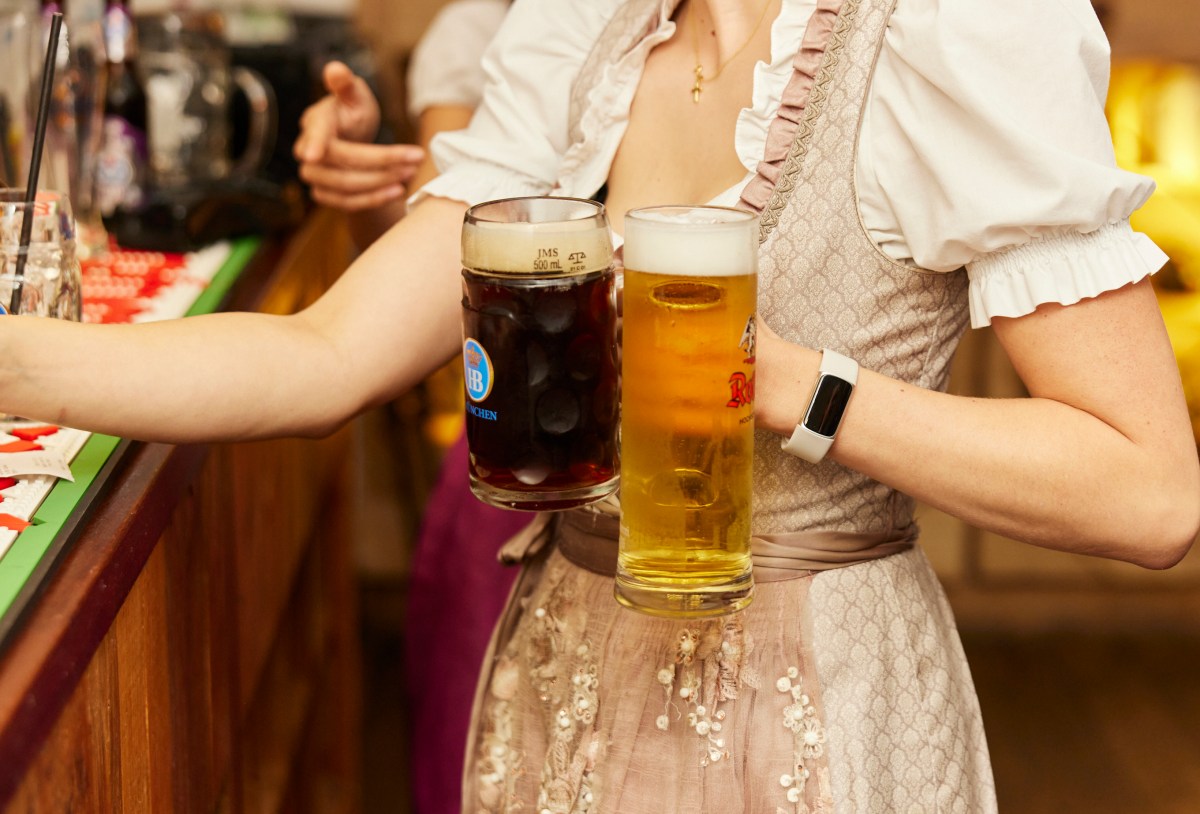For more than 500 years, the German Purity Law, or Reinheitsgebot, has been a symbol of tradition, quality and authenticity in brewing.
First enacted in 1516 as a way of ensuring that what goes into beer is natural, the law stated that beer could only be made from three ingredients: water, barley and hops. Later, once its role in fermentation was better understood, yeast was also added to the list.
Today, many German breweries still adhere to the law, and for beer enthusiasts, it represents a commitment to time-honoured methods – a mark of purity and craftmanship.
Hailing from Regensburg, Philipp Hockenberger, Brand Manager and beer curator at Melbourne’s Hofbrauhaus, is dedicated to preserving and celebrating the rich heritage of his native Germany. He says the Purity Law is a hallmark of German brewing culture.
“Still today, the Bier Purity Law is upheld in Germany, and every brewery must brew their Biers by it, otherwise, they cannot label their beverages as ‘Bier’. Germans are still very serious about the Bier Purity Law, and there is a certain level of pride around the German Bier, too,” Hockenberger told Beer & Brewer.
At Hofbrauhaus Melbourne, the mission is simple – offering the most authentic German experience on this side of the world. Beer is a crucial pillar of German culture, and Hockenberger handpicks every beer poured at the venue, ensuring each of them upholds the Reinheitsgebot.

Abiding by the law ensures authenticity, but Hockenberger also sees it as an assurance of high-quality beer.
“Drinkers can confidently believe their beer is made only from traditional ingredients used for centuries. This enhances the reputation of German beer and helps maintain consistency in flavour and quality across breweries.
“Additionally, the law promotes a focus on the skill and artistry of brewing, encouraging brewers to innovate within the constraints of these ingredients. It also has cultural significance, connecting brewers to a long and proud tradition cherished by locals and beer enthusiasts worldwide,” he explains.
The decision to exclusively sell beers crafted in Germany under the law isn’t without its challenges, though.
“Shipping something perishable worldwide isn’t cheap, and the local taxes are high, so there is a significant risk. Good planning and strong partnerships with distribution partners and breweries are paramount, but the opportunity is based on our love for a good German beer and our mission to bring this experience to Australia,” says Hockenberger.
Brewing by the book
While the framework of the Reinheitsgebot promotes tradition and quality, many have questioned whether it also has the potential to limit experimentation. So, what does it really mean for brewers who follow it today?
“In a world where craft beer is all about innovation – thinking of unique flavours, new brewing techniques, and diverse ingredients – strict adherence to the Purity Law can feel restrictive for some brewers. However, many German brewers manage to innovate creatively within these boundaries, exploring new brewing styles, using different barley varieties or hops, and creating specialty beers,” says Hockenberger.
“While a beer brewed according to the Purity Law is limited to its ingredients, there are thousands of different variations of each ingredient. There are roughly 200 variations of hops and over 100 different sorts of malt and barley. Those two ingredients alone already offer a vast array of different flavours, and that’s without considering the brew and lagering method, yeasts and water. While water is considered something that has barely any flavour, you would be surprised by its impact on something like a beer.
“The challenge is to balance tradition with the evolving tastes of consumers. In my experience, this balance continues to enrich the German brewing scene, even here in Australia, where people are eager for authentic flavours.”
While many Australian beer drinkers are familiar with the Reinheitsgebot, many still remain unaware of the law and its significance, and Hockenberger is trying to change that.
“We are trying to educate the market in different ways. A few passive ways, such as content on our website, menu, or social media account, but also in a more intense way with the beer master classes that we offer. These two to three-hour long sessions are a great experience for beer lovers and those who aren’t too familiar with beer. We pair five beers with some delicious German food and talk about German beer culture. Obviously, the Bier Purity Law, its history and why it got put in place are a big talking point, but also the different types of beer you can create by adhering to the law,” he concluded.

